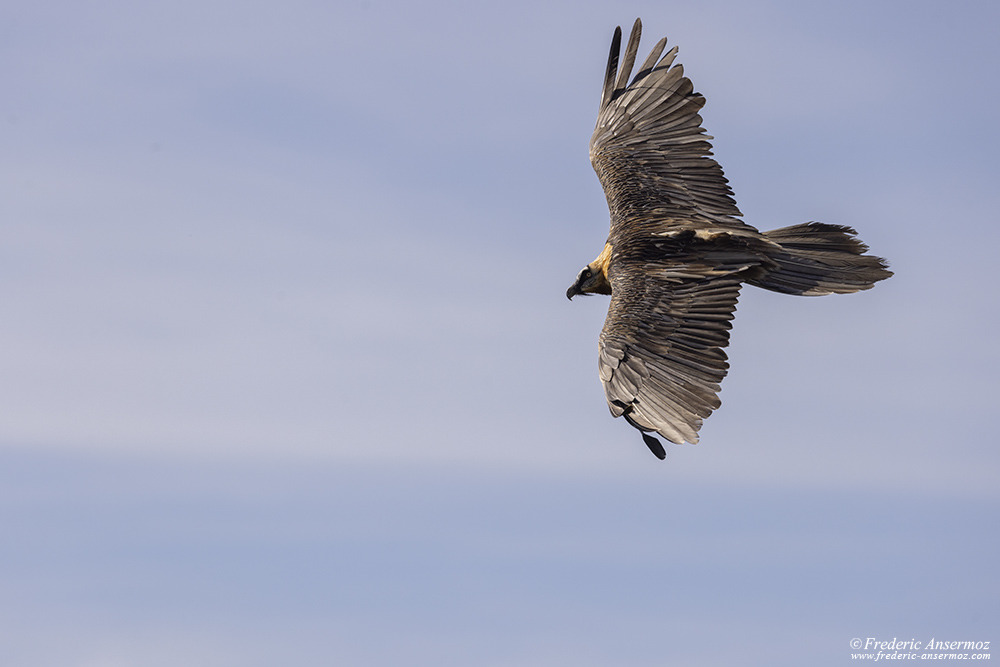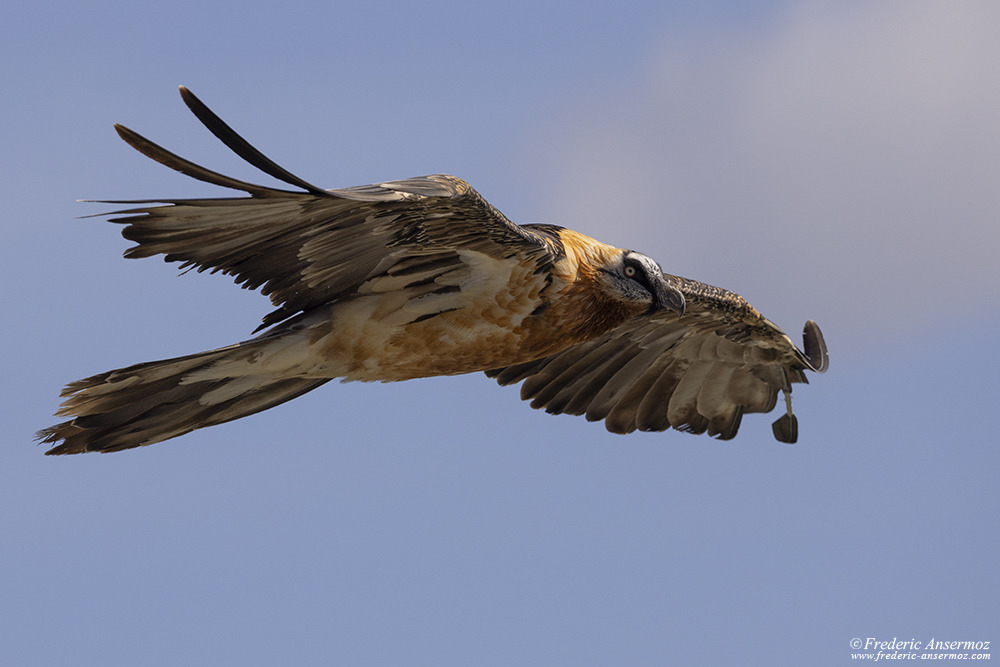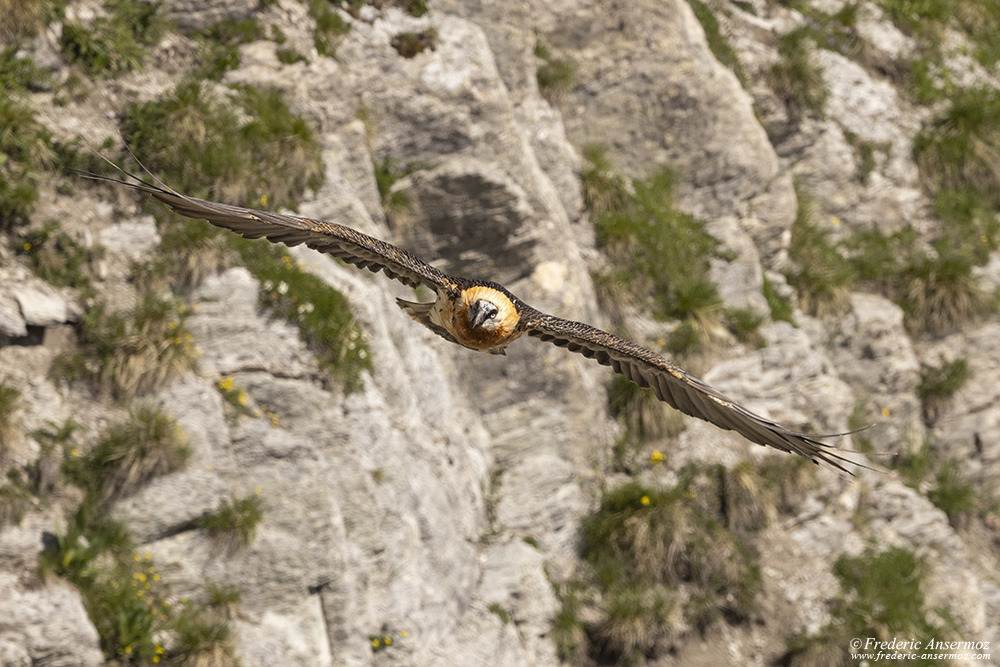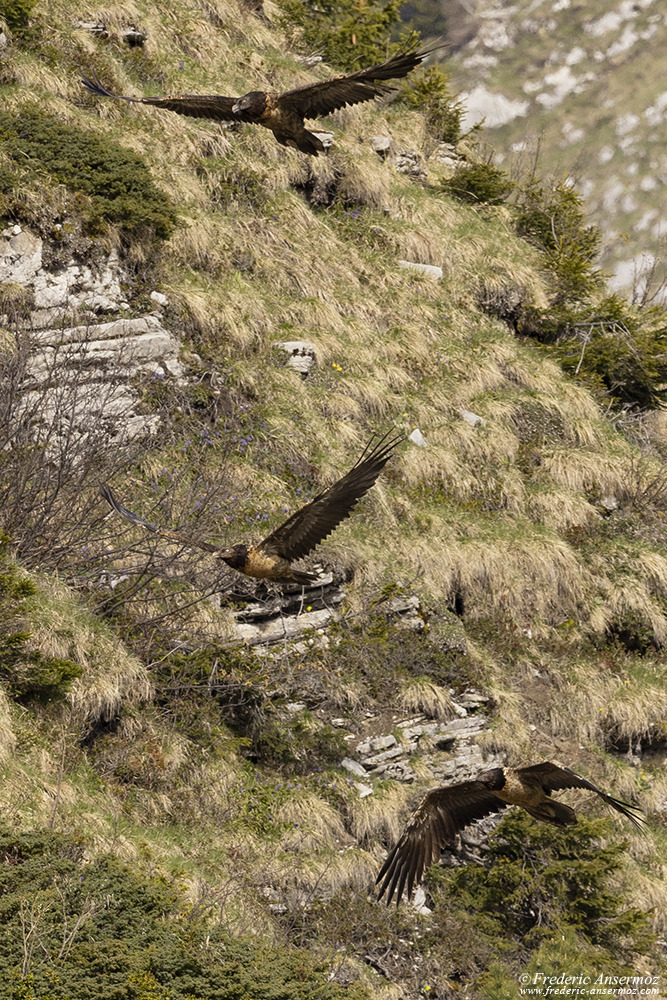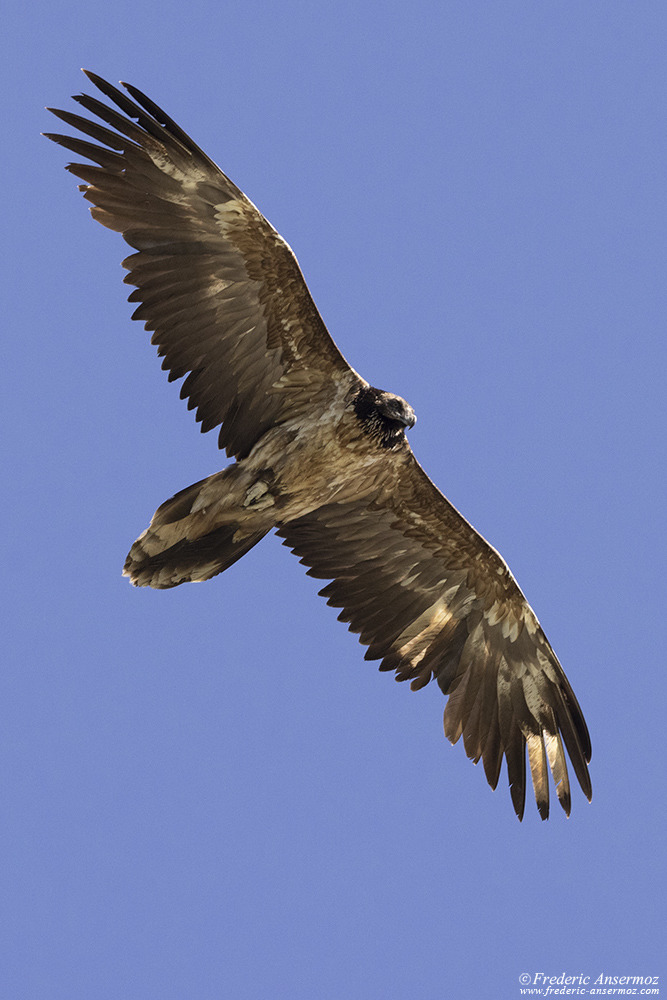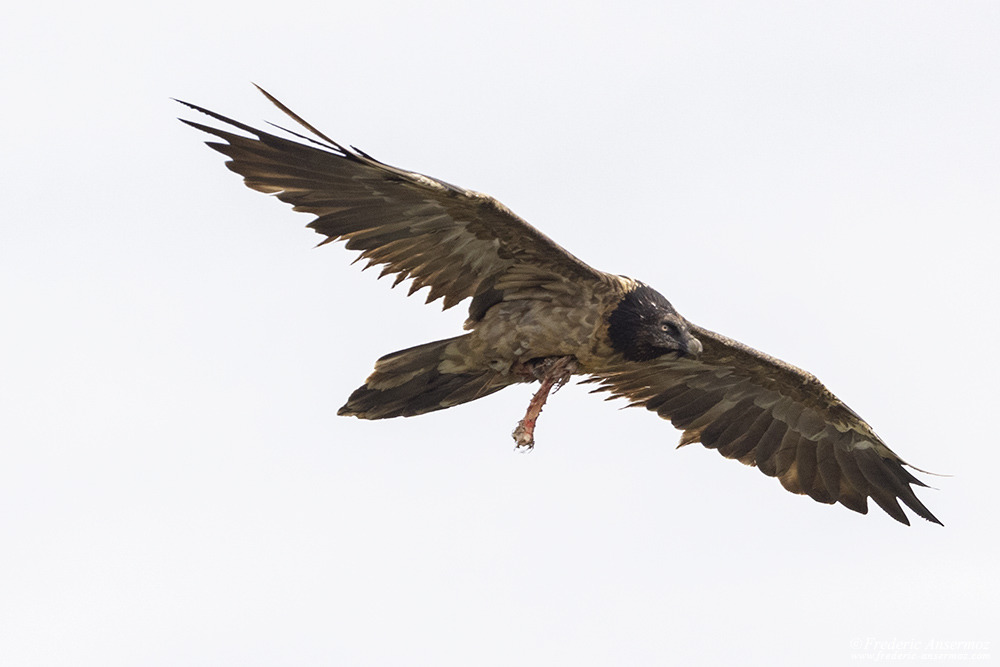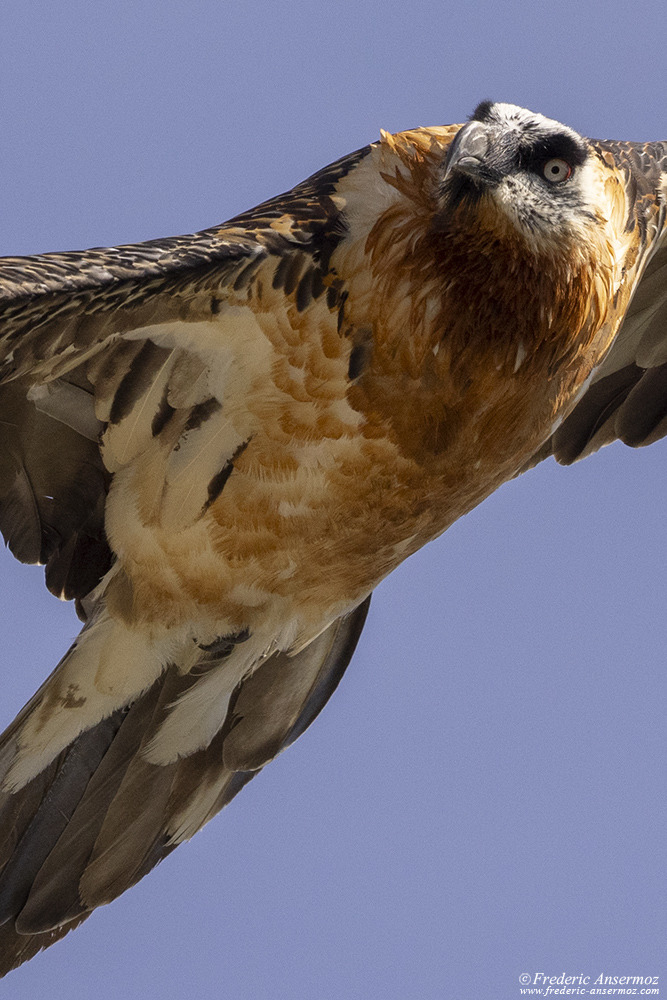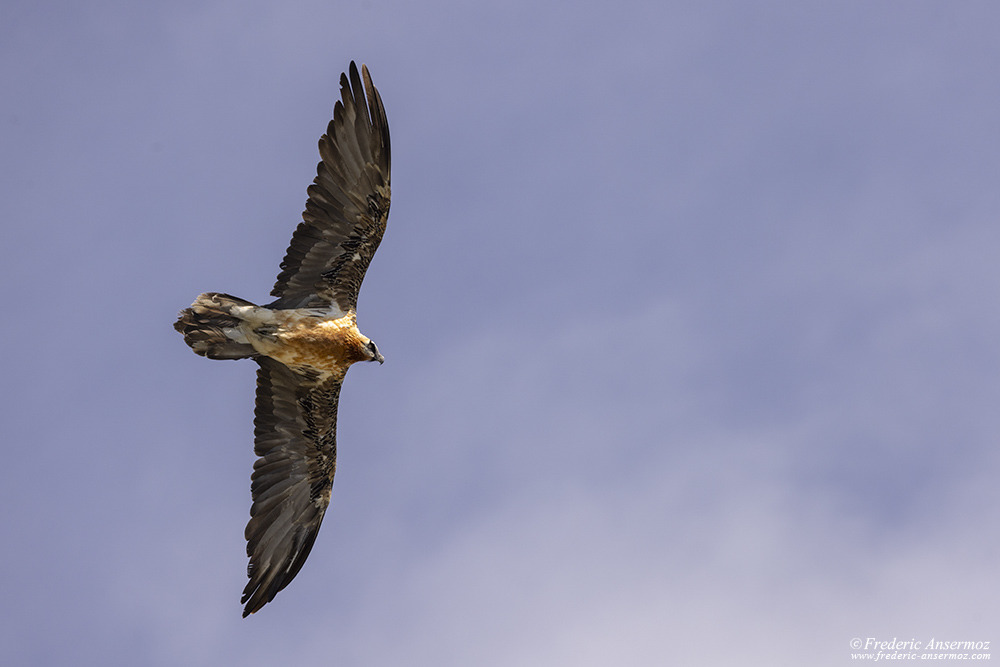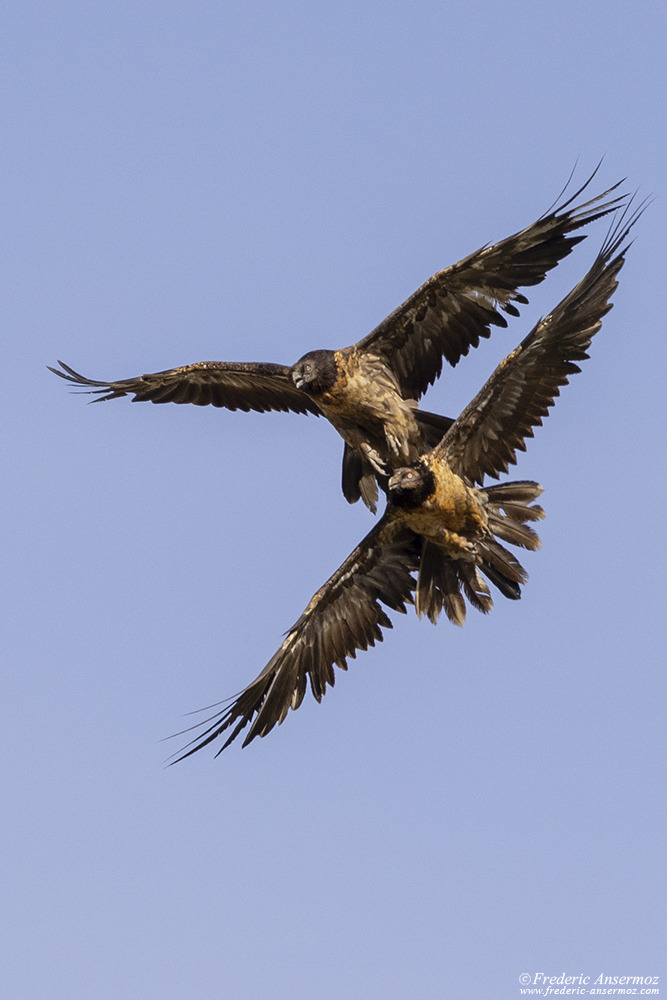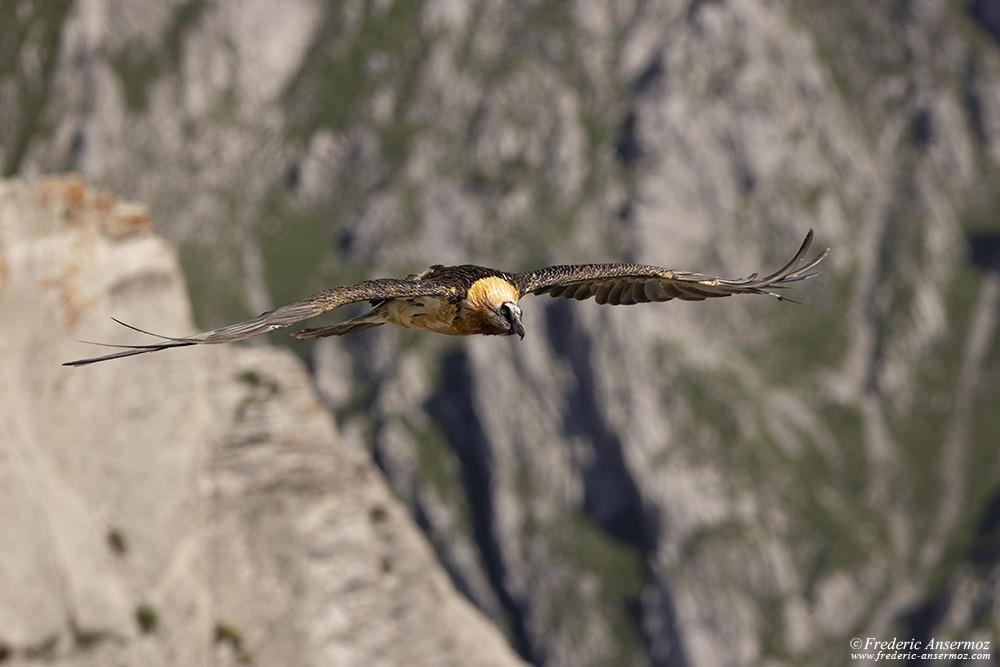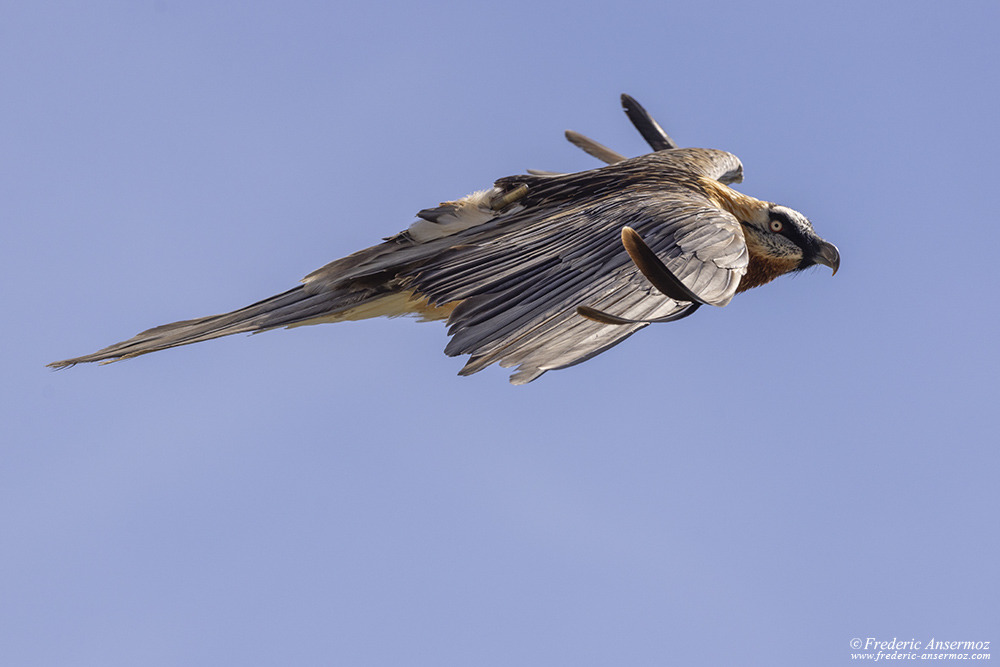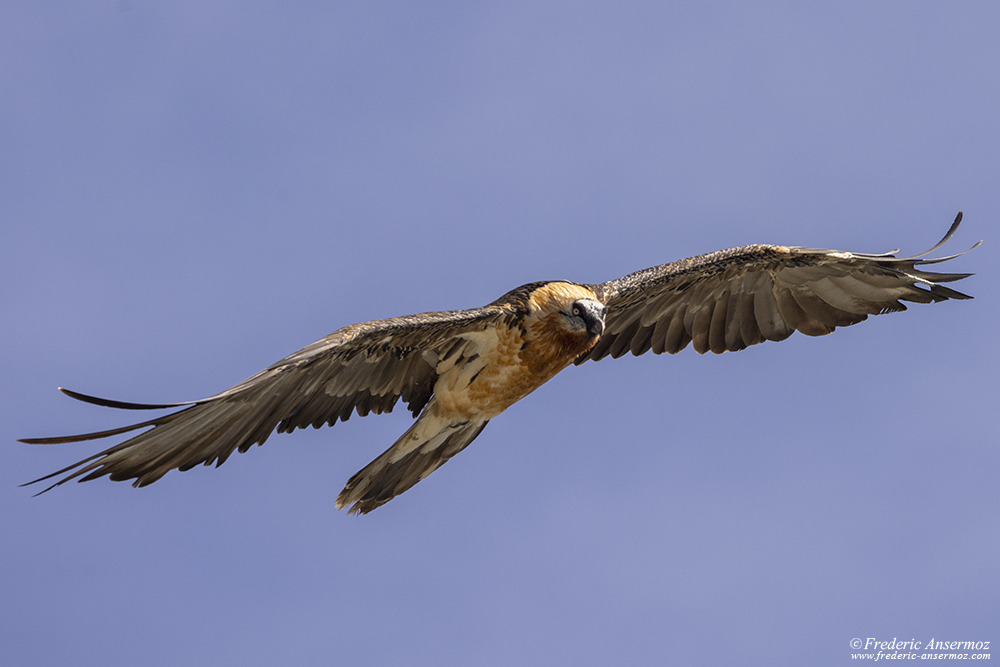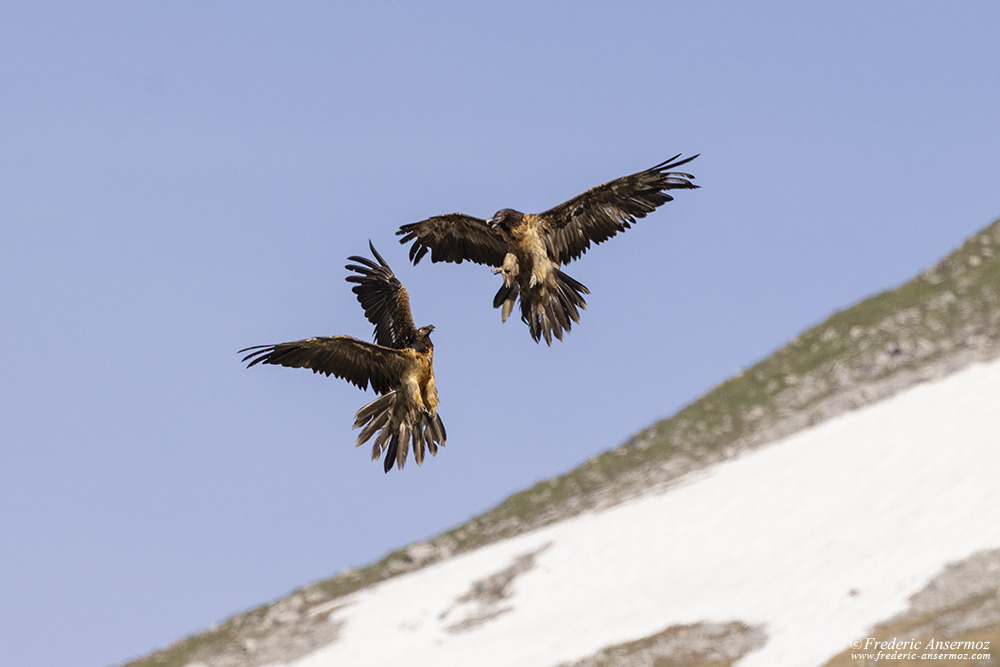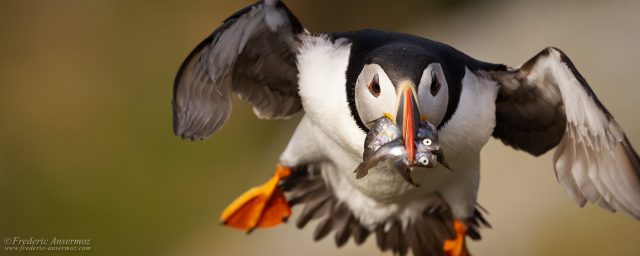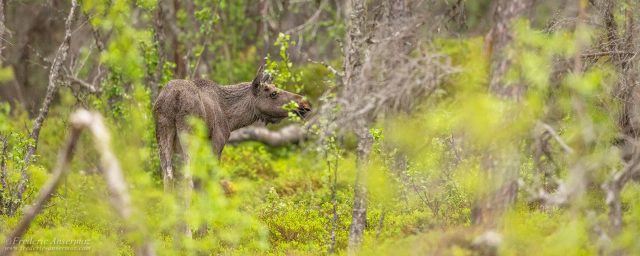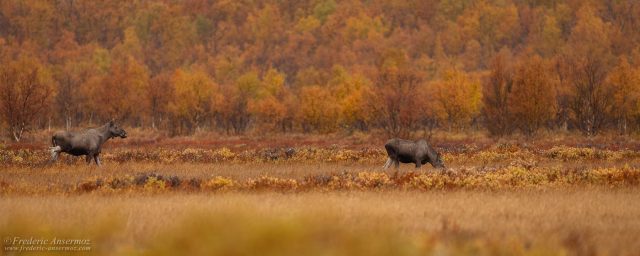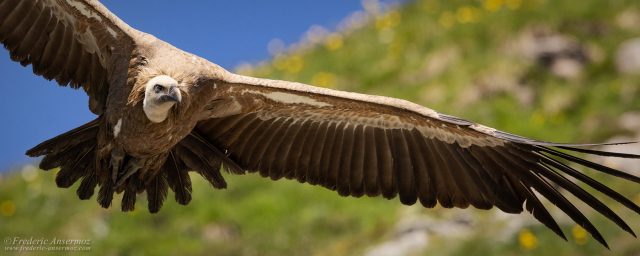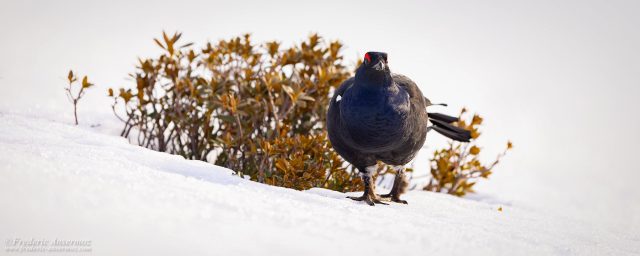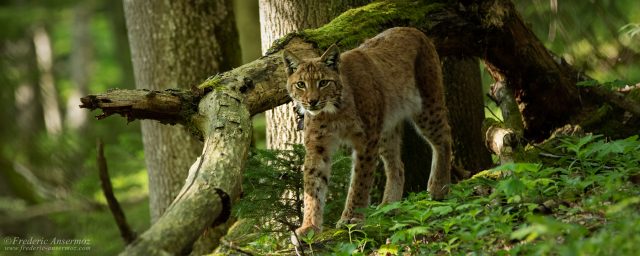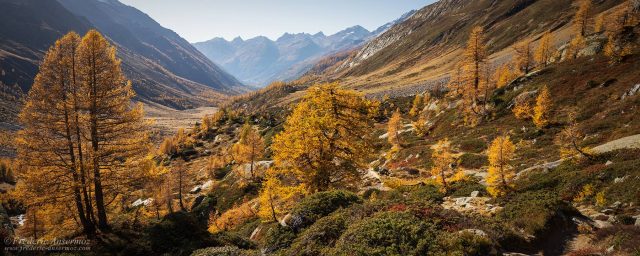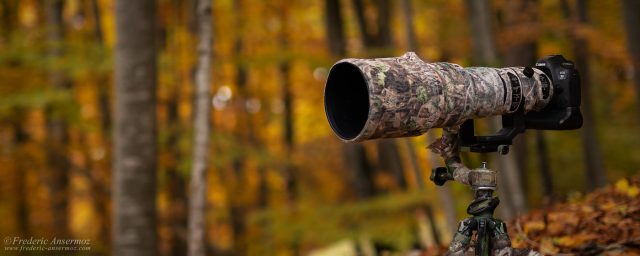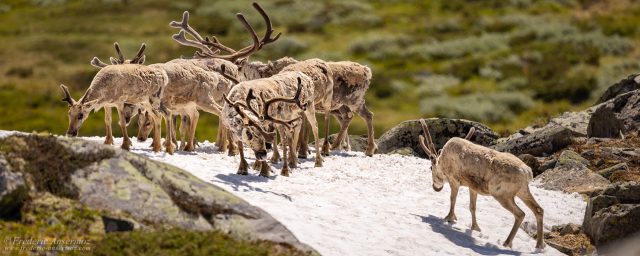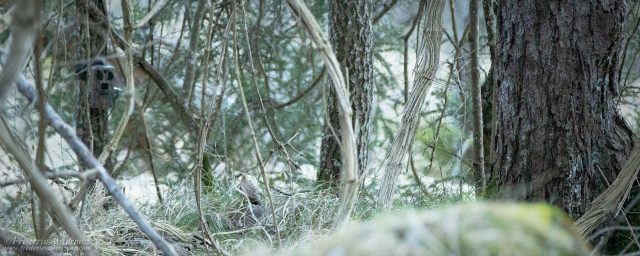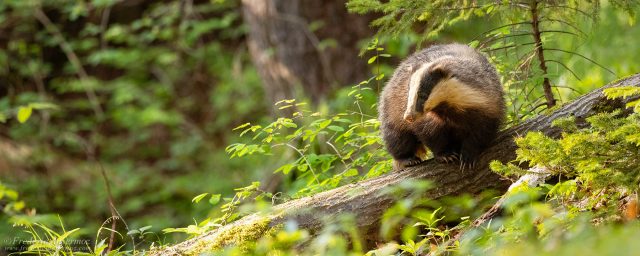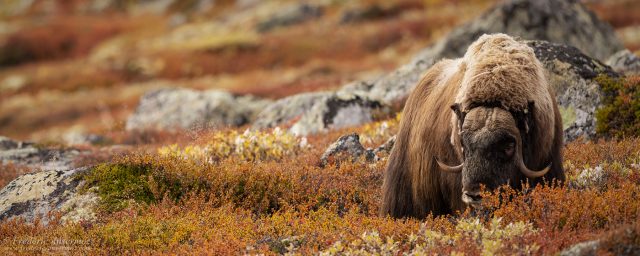The Bearded Vulture in Switzerland: The Return of a Sky King
The bearded vulture (Gypaetus barbatus), also known as the “bone breaker,” is one of the most spectacular and iconic birds of prey in Europe. After disappearing from the Swiss Alps in the early 20th century due to hunting and poisoning, it has made a remarkable comeback thanks to exceptional conservation efforts.
A Unique Bird of Prey
The bearded vulture is notable for its majestic and somewhat peculiar appearance. With an impressive wingspan of up to 2.8 meters, it features orange and black plumage, colored by bathing in iron-rich dust. Its head is adorned with a characteristic beard under its beak, giving the bird its name.
This raptor is a unique specialist: it feeds primarily on bones, which it breaks by dropping them onto rocks from great heights. This strategy allows it to access bone marrow, a highly nutritious resource.
A Conservation Success Story
The bearded vulture was reintroduced to the Swiss Alps in the 1980s through international captive breeding programs. Today, viable populations are established in several alpine regions, including Graubünden, Valais, and the Pre-Alps. These conservation efforts are the result of collaboration between local and international organizations.
Raising Awareness and Ensuring Protection
Despite these advancements, the bearded vulture remains vulnerable. Threats such as collisions with human infrastructure, accidental poisoning, and disturbances caused by recreational activities still pose challenges. Public awareness is essential to ensure the long-term survival of this fascinating species.
The return of the bearded vulture is a shining example of how conservation can correct past mistakes. By caring for its habitats and respecting its needs, we can hope to see this majestic “bone breaker” reign over Swiss skies once again for generations to come.
For nature enthusiasts, spotting a bearded vulture in flight is an unforgettable experience. Bring binoculars and be patient: its graceful and silent flight is well worth the wait.
Interested in vultures ? You can also check this article about the Griffon Vulture in Fribourg.

